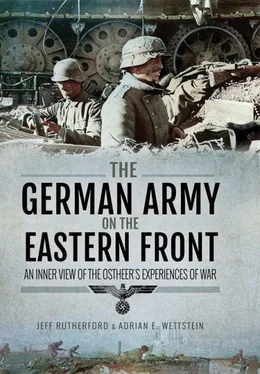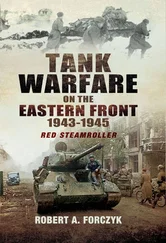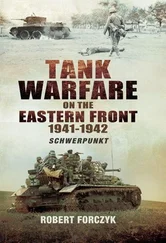Schmidt: In all battles as a division commander fully proven. Stopped the Russian onslaught at Werchowije in December 41, leading in the frontline, and held up despite the most unfavourable conditions. In the following defensive and attacking battles of his division, he again led well and confidently. Fully suitable as commanding general of an army corps. No incidents of incompatibility occurred.
Again, von Oven was assessed as an above-average commander with a good tactical view and a confident leadership style. According to the new rules of the Army Personnel Bureau from late 1942, National Socialist attitudes were now part of the evaluation, with the problems for historical interpretation as mentioned above.
As suggested in all of his assessments, von Oven was commissioned to lead the XXXXIIIrd Army Corps in the area west of Velikiye Luki on 28 January 1943. Promoted to General der Infanterie on 1 April 1943, he became full commander of that Army Corps. The notion of incompatibility again arose, as a note from July 1943 by his new superior, Generaloberst Hans-Georg Reinhardt, Commander Third Panzer Army, indicated:
Again significant friction. If this doesn’t stop, it is not acceptable for him to continue to remain as a commanding general.
Once again, it seems as it was possible to reduce these frictions, since Reinhardt’s next evaluation on 22 September 1943 was very positive, even proposing that von Oven could rise another step in command:
Commands with a firm hand, good tactical eye and with the commitment of the whole personality. As far as I have known him in the time of the positional war, he will be able to gain the suitability as army commander.
Army Group Centre’s Commander, von Kluge, did not fully agree:
Cannot be considered an army commander. As commanding general in a quiet sector fully proved, he will stand his ground, also – as in his time as divisional leader – in crisis situations.
Due to shifting of sector boundaries between Third Panzer Army (Army Group Centre) and Sixteenth Army (Army Group North), von Oven and his corps fell under a new chain of command in late-August 1943 (this being the reason for the belated assessment by Reinhardt and von Kluge mentioned above), which was more critical of von Oven’s leadership. It seems that the battles around Nevel and later in the Narva bridgehead wore on von Oven. His new superior, General der Artillerie Christian Hansen, wanted to release von Oven, a decision supported by Generalfeldmarschall Walter Model in March 1944: ‘No longer possesses the freshness and resilience needed for the leadership of a corps in the East. I therefore propose to use General der Infanterie von Oven after a period of rest in the Heimat .’ His final assessment of von Oven was also rather negative:
Not a strong personality, who has his own views and represents them. Energy and resilience considerably affected. His leadership shows no decided flaws but little drive and strength, lack of freshness and hardness. Below average. Use in the Heimat .
Von Oven’s career was typical for many German generals who did not climb up the ladder to the highest positions of command (even if one should keep in mind that von Oven’s corps in the Narva area had five to six subordinated divisions, which was far more than usual and could be viewed as a small army). But more interestingly, it shed light on an often forgotten issue of German command in the East: many officers simply burned out under the burden of command, especially as the war dragged on and the German situation became critical and finally desperate. These men were in their fifties and conditions in the Soviet Union were demanding, especially as mid-level command staffs often had to choose Soviet village houses for command posts and quarters. Von Oven was relieved from his command in March 1944 and sent to Germany for a cure. He was then chosen to command Feldjäger-Kommando II , a staff with subordinated military police units, which had to combat signs of disintegration, collect stragglers and control rear-area units for combat-ready men without mission and forward those to the combat units. In case of emergency, these staffs were also to organize lines to catch unorganized retreating forces. Ironically, von Oven – termed by Hansen as lacking drive, freshness and hardness – was commissioned with leading the staff deployed in Belarus, which soon witnessed a major Soviet offensive that crushed Army Group Centre. It seems that he again stood his ground there, as his organization was essential in collecting soldiers in East Prussia and Poland to stabilize the German front there in autumn 1944 – a task that demanded all the qualities that Hansen believed von Oven no longer possessed.
A third person to look is one of the most highly decorated non-generals of the army, Werner Ziegler. [28]It is more difficult to reconstruct careers of the less well-known and documented men of field officer ranks (in Germany called staff officers). Ziegler was born in the middle of the First World War in April 1916. He grew up in the uncertain times of the Weimar Republic and the National Socialist ‘seizure of power’. As usual for his age group, he served a six-month period in the Reich Labour Service in 1936 before joining the infantry as a volunteer – a rather rare case, as most volunteers choose prestigious arms like tank troops, aircraft pilots or the Waffen-SS . He was not directly chosen as an officer, but served for one year as a rifleman before becoming a reserve officer candidate. He then was successively a deputy group leader, group leader, and platoon leader and attended a platoon leader course at the infantry school in Döberitz. On 20 April 1939 he was commissioned Leutnant der Reserve . With the beginning of the Second World War, Ziegler was sent to the 186th Infantry Regiment (73rd Infantry Division), which would become his home for the next three years, and was additionally transferred into the active officer corps. He served with the regiment in all German major campaigns, starting with the invasion of Poland as platoon leader (but with only minor action, as the 73rd Infantry Division was in reserve and after its initial deployment sent to the Western front), the offensive against France (as battalion adjutant, winning the Iron Cross Second Class), the campaigns in the Balkans and against the Soviet Union (as company commander, winning the Iron Cross First Class in the Balkans, and both the Knight’s Cross and the Infantry Assault Badge in the Soviet Union) before rising to the status of battalion leader in June 1942, while his division was engaged in the German summer offensive of 1942. But his rank lagged behind his status. He was only promoted to the rank of Oberleutnant in November 1941, and by this time he had already served for more than a year as company leader. It took nearly another year until he was promoted to Hauptmann , when he was already leading a battalion. And he did this with skill and courage, as the following episode shows, when Zielger was leading I./Infantry Regiment 186 in its assault of the Black Sea port Novorossiysk: [29]
At 2.30pm Infantry Regiment 186 approaches on the outskirts of Mefodiyevskiy. The place is heavily occupied by enemy. From all the houses and well entrenched positions on the outskirts of the village, it fires mortars, machine guns and sniper rifles.
The artillery defence, including naval guns of heavy calibre, increases, so the attack breaks down. A concentrated fire attack at 4.00pm from 3 [artillery] battalions on the outskirts brings relief. Closely behind the fire, the regiment advances on the houses. The Second Battalion succeeds at first in breaking in from northwest. Due to this thrust in the flank, the opponent has to give ground to the frontal pressure of the First Battalion and withdraws.
Читать дальше






![John Stieber - Against the Odds - Survival on the Russian Front 1944-1945 [2nd Edition]](/books/405234/john-stieber-against-the-odds-survival-on-the-russian-front-1944-1945-2nd-edition-thumb.webp)





